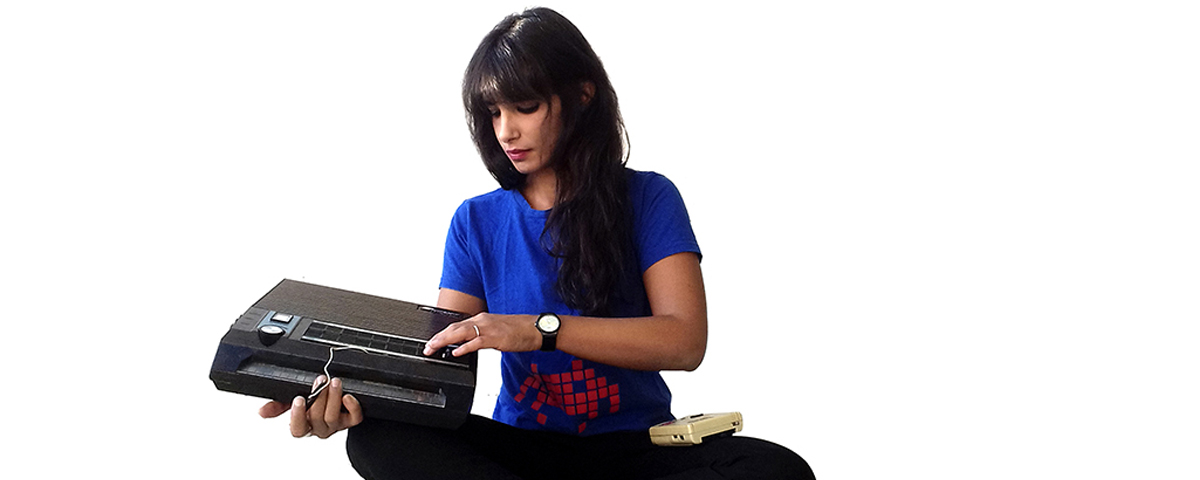Activism, Technology And Feminism : A Conversation Between Rehab Hazgui & Sophie Toupin
Participants

Tuesday November 24, 2015, 6pm
@ STUDIO XX – 4001, Berri (corner Duluth) space 201
Suggested donation: 2$, *FREE* for members
Refreshments will be served
In collaboration with Perte de Signal, Studio XX presents a conversation between Rehab Hazgui (Tunisia) and Sophie Toupin (Montreal), Tuesday November 24, 6pm.
Hacking is the practice where Rehab Hazgui and Sophie Toupin intersect. Rehab has traveled to Montreal for an artistic residence at Perte de Signal, where she is creating a series of audiovisual instruments made of electronic waste she has found in the city. Sophie Toupin’s research focuses on anti-colonial hacking, feminist approaches to digital security and privacy and, feminist, queer + trans hacker culture. In this conversation, Rehab and Sophie will talk about the ways in which they work with open-source models and DIY methods to engage with so-called marginal communities, to nourish a culture of cooperation, and to discuss how their research and practice becomes the means for political action.
Rehab Hazgui (Tunisia) explores experimental electronics and biohacking through electromechanical sound installations and performances involving handmade audio devices. Active in community initiatives, she considers DIY culture and digital creation as mediums for civic action. She is the co-founder of El FABRIKA, a platform for experimental art, alternative design, and activism.
Sophie Toupin (Montreal) explores the linkages between technology, feminism and activism through ethnographic studies and projects. Sophie works for Media@McGill, a hub for research and scholarship on media, technology and culture at McGill University in Montreal. Her current research focuses on anti-colonial hacking, feminist approaches to digital security and privacy and, feminist, queer + trans hacker culture.
PERTE DE SIGNAL welcomes Rehab Hazgui (Tunisia) at RUSTINES|LAB, from October 14 to November 27, 2015, as part of its pilot project, the Quebec-Africa Digital Art Residency with the support of Conseil des arts de Montréal. The residency supports African artists to research and create digital art projects of open-source software and hardware in Montreal.